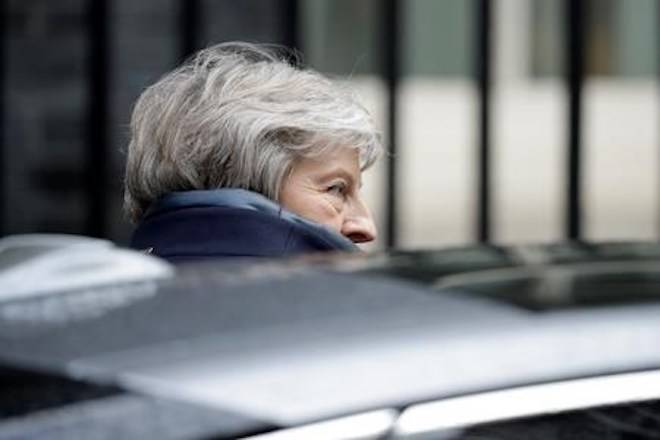British Prime Minister Theresa May will meet with European Commission President Jean-Claude Juncker in Brussels on Wednesday in a bid to finalize a Brexit agreement as she continued to battle domestic critics of the draft deal.
The U.K. and the European Union agreed last week on a 585-page document sealing the terms of Britain’s departure, but are still working to nail down agreement on future relations.
EU leaders will meet in Brussels on Sunday to rubber-stamp the deal, but sticking points remain. Spain has said it will vote against if Gibraltar’s future isn’t considered a bilateral issue between Madrid and London.
Spanish Prime Minister Pedro Sanchez said Tuesday that his government “cannot accept that what will happen to Gibraltar in the future depends on negotiations between the U.K. and the EU.”
German Chancellor Angela Merkel said Wednesday that she hoped Spanish reservations could be overcome before Sunday’s summit. But, she added, “I can’t say how we will solve this issue.”
The deal, which spells out the conditions of Britain’s exit from the EU in March and a framework for future relations, also needs to be approved by the European and British Parliaments.
Read more: UK’s May appeals to public on Brexit, braces for more blows
Read more: EU divorce deal in peril after two UK Cabinet ministers quit
But May is under intense pressure from pro-Brexit and pro-EU British lawmakers, with large numbers on both sides of the debate opposing the divorce deal.
Before leaving for Brussels, she will face opponents of the agreement during the prime minister’s weekly question-and-answer session in the House of Commons.
She won a reprieve from some of her Conservative Party foes after pro-Brexit rebels acknowledged that a bid to trigger a no-confidence vote in May had failed, for now.
But Northern Ireland’s Democratic Unionist Party — whose 10 lawmakers prop up May’s minority — has begun abstaining on votes in the House of Commons as a sign of their displeasure at the deal. The DUP opposes plans for keeping the border between Northern Ireland and EU member Ireland open after Brexit, saying it weakens the ties binding the U.K. by creating separate trade rules for Northern Ireland.
The prospect of Parliament rejecting the deal when it comes up for a vote — likely next month — has increased fears among businesses that Britain could crash out of the bloc without a plan to keep trade running smoothly.
Conservative lawmakers loyal to May also warned that defeating the agreement could mean that Brexit never happens, because Parliament would halt Britain’s departure rather than accept a chaotic “no-deal” Brexit.
“I think people will take a careful look over the abyss … and consider whether they think it is in the best interests of the whole country,” Work and Pensions Secretary Amber Rudd said.
“The Brexiteers may lose their Brexit,” she added.
___
Frank Jordans in Berlin contributed to this story.
Jill Lawless, The Associated Press



